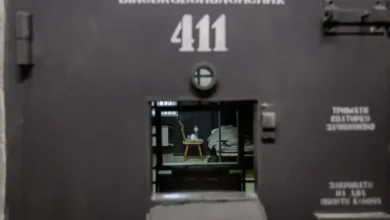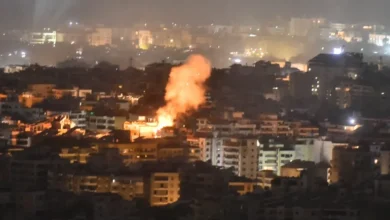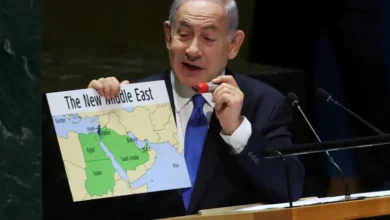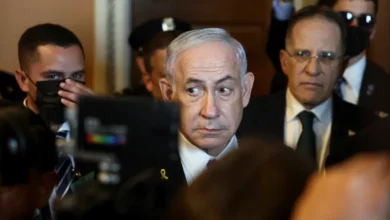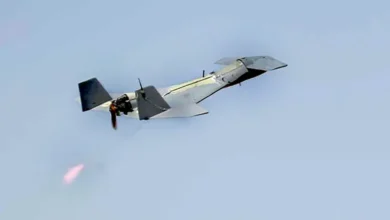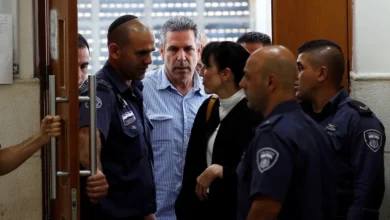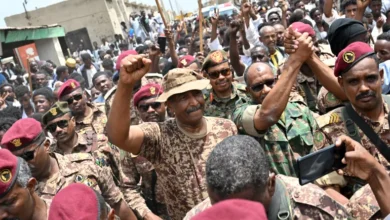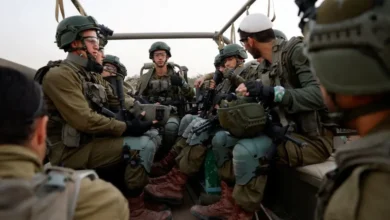‘Uncommitted’ delegates bring Gaza-war message to Democratic convention
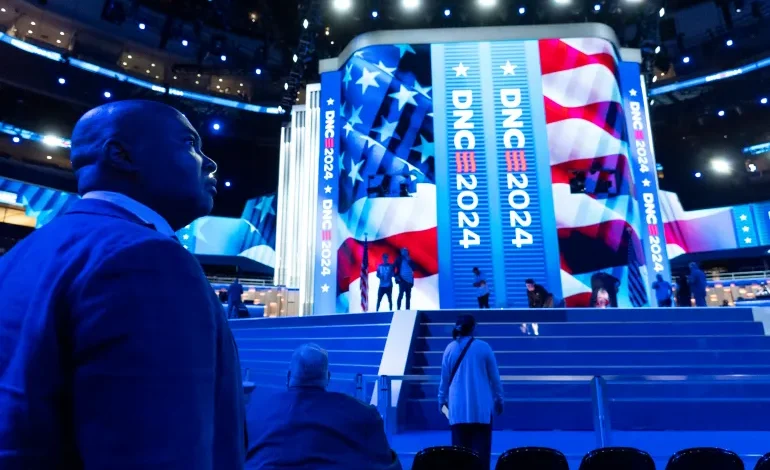
It started as a last-minute effort in February: Organisers in Michigan hoped to use the state’s Democratic primary to send a message to President Joe Biden to end his support for Israel’s war in Gaza.
Six months later, Biden is no longer the Democratic presidential candidate. But the US’s “ironclad” support for the war continues. And so has the “uncommitted” movement, the protest effort born in Michigan.
Initially, the aim was to encourage primary voters across the country to cast their “uncommitted” ballots in protest of the war. But now that the primary season is over, the “uncommitted movement” has set its sights on a new platform: the Democratic National Convention.
Next week, 30 delegates from eight states, representing some 700,000 voters who cast “uncommitted” ballots, will be heading to the convention in Chicago. Though they have been denied an official platform to speak at the proceedings, they hope their presence will still send a strong message.
“We’re the first delegation ever to be representing Palestinian human rights. And I think that that’s really important. We’re a small but mighty group,” said Asma Mohammed, who organised for the “uncommitted” movement in advance of Minnesota’s primary.
Mohammed acknowledged the “uncommitted” delegates will be a minority at the convention. Still, she emphasised the voter base they represent could be decisive in November’s general election.
“There’s 30 of us, and there’s over 4,000 delegates nationally. So we’re less than 1 percent of the delegates,” she told Al Jazeera.
“But inside the convention hall, we will be representing the Palestinians that were massacred, representing the almost million voters nationwide who said that they want a ceasefire right now and that they want an arms embargo.”
The group had requested for Dr Tanya Haj-Hassan, a pediatric intensive care physician who has worked in Gaza, to speak at the convention. Their appeal was denied, Mohammed said.
Still, the delegates, under the banner of the Uncommitted National Movement, will hold a programme of events on the sidelines of the convention. There, they will meet with various caucuses and seek to rally other delegates pledged to Kamala Harris, the new Democratic nominee for president.
‘Fighting for human rights’
The Uncommitted National Movement has already used its position to protest against the continuing bloodshed in Gaza, where more than 40,000 Palestinians have been killed.
Earlier this month, Harris was formally designated the Democratic nominee through a virtual roll call — an online vote in which all delegates could take part.
Instead of voting for Harris, the “uncommitted” delegates nominated victims from Gaza. Mohammed was among the delegates who participated in the protest.
“I submitted my vote for Reem Badwan, a three-year-old who was murdered in an Israeli air strike in Gaza,” Mohammed said. “And I made clear my vote [in the general election] was contingent on a ceasefire and an arms embargo.”
Ahmad Awad, an “uncommitted” delegate from New Jersey, said the effort was a “symbolic way to highlight the many victims of the war”. The 29-year-old lawyer nominated Abdul Rahman Manhal, a 14-year-old killed in Gaza’s Nuseirat refugee camp in November.
“The districts that I’m representing as an ‘uncommitted’ delegate encompasses Paterson and Clifton, New Jersey, which are home to a large Palestinian American community. It’s basically little Ramallah,” Awad said, drawing an analogy to the West Bank city.
Awad explained that his participation in the “uncommitted” movement stems from a family history of fighting and surviving human rights abuses.
“Fighting for human rights is something that’s really ingrained in my DNA,” he told Al Jazeera.
“On my father’s side, both of my grandparents were born in Palestine prior to 1948. My mother’s side is Polish. My grandfather is a survivor of Nazi slave labour camps.”
‘Resolute is the best word’
In Harris’s abrupt entrance into the presidential race, activists have seen a potential opening for a course change in US policy towards Israel.

